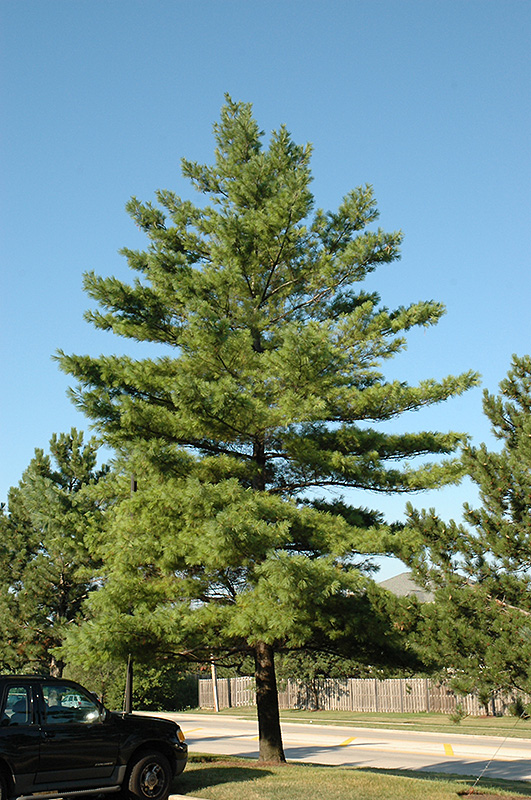Plant Search
Height: 60 feet
Spread: 35 feet
Sunlight:
![]()
![]()
Hardiness Zone: 3a
Other Names: Eastern White Pine
Description:
Native evergreen that features silky smooth long needles which give a fuzzy appearance from a distance, tall wide habit of growth; can windburn in exposed locations, best grown in some shelter, but needs full sun; a beautiful specimen tree
Growing Place Choice Plants
Our Growing Place Choice plants are chosen because they are strong performers year after year, staying attractive with less maintenance when planted in the right place.
Learn more about this promotion!
Ornamental Features
White Pine is primarily valued in the landscape for its distinctively pyramidal habit of growth. It has rich green evergreen foliage. The needles remain green throughout the winter. The furrowed gray bark adds an interesting dimension to the landscape.
Landscape Attributes
White Pine is an evergreen tree with a strong central leader and a distinctive and refined pyramidal form. Its relatively fine texture sets it apart from other landscape plants with less refined foliage.
This is a high maintenance tree that will require regular care and upkeep. When pruning is necessary, it is recommended to only trim back the new growth of the current season, other than to remove any dieback. Gardeners should be aware of the following characteristic(s) that may warrant special consideration;
- Insects
- Disease
White Pine is recommended for the following landscape applications;
- Shade
- Hedges/Screening
Planting & Growing
White Pine will grow to be about 60 feet tall at maturity, with a spread of 35 feet. It has a high canopy with a typical clearance of 6 feet from the ground, and should not be planted underneath power lines. As it matures, the lower branches of this tree can be strategically removed to create a high enough canopy to support unobstructed human traffic underneath. It grows at a fast rate, and under ideal conditions can be expected to live for 50 years or more.
This tree does best in full sun to partial shade. It does best in average to evenly moist conditions, but will not tolerate standing water. It is not particular as to soil type or pH. It is highly tolerant of urban pollution and will even thrive in inner city environments. This species is native to parts of North America.
A NetPS Plant Finder tool


